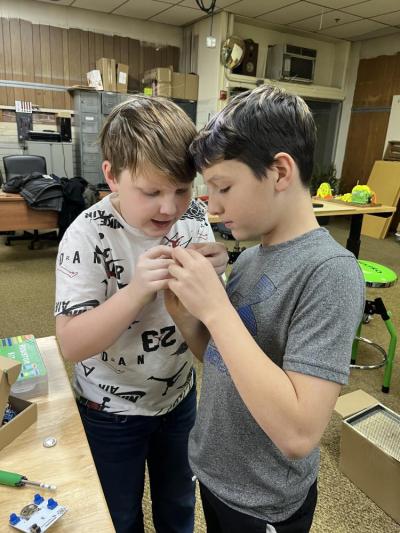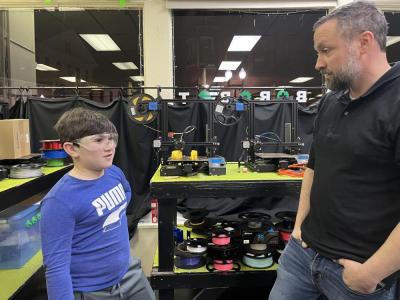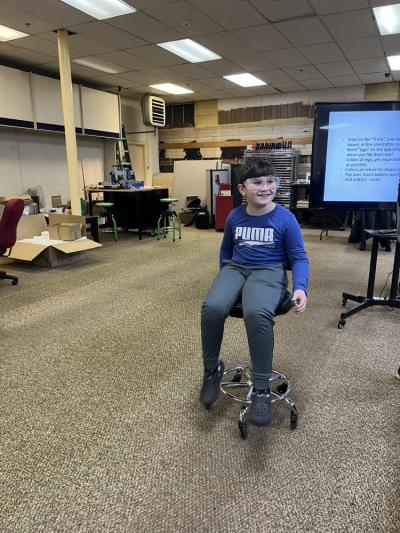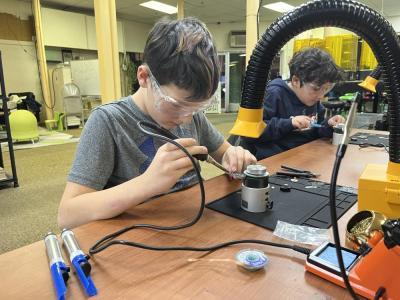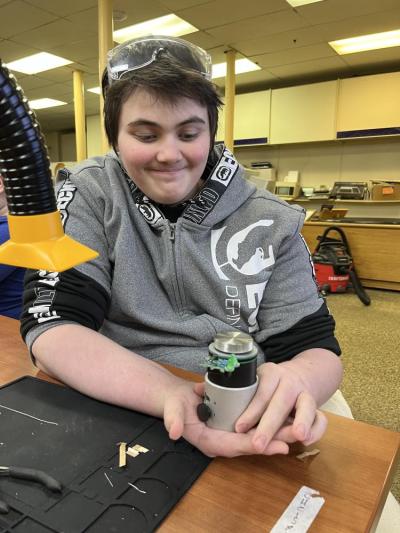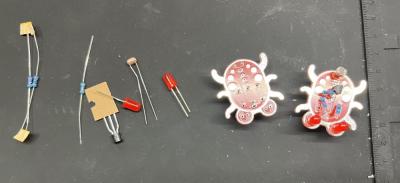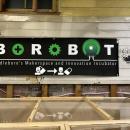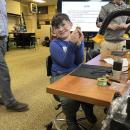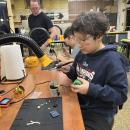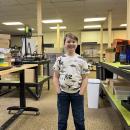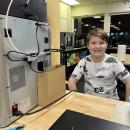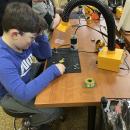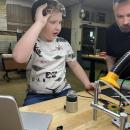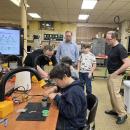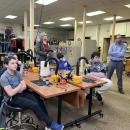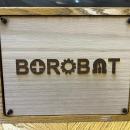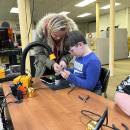Faces and circuits light up at BoroBot
MIDDLEBORO — Five children spent their Thursday evening making Hershey’s Kisses, but not the kind you can eat.
On Thursday, Jan. 18, BoroBot, a Middleboro non-profit makerspace located on 11 Center St., held one of its regularly occurring soldering classes.
Soldering is a technique that is used to create electronic circuits. The children who participated in the class learned how to create a toy with a light sensor that lights up when placed in a dark area.
Yuko Marshall, the mother of Kai Marshall, one of the children who attended the class, said that she was happy that her son was learning tech skills like soldering at a young age. “That’s the future,” she said. “They need to learn and this is a great way to learn.”
The class was taught by President of Central Square Computer Repair Christopher Van, former Middleboro School Committee member Richard Oakley, and Declan Alchorn, a BoroBot student turned instructor.
The class began with a demonstration from Van about the correct technique for how to solder circuit components into a circuit board.
A circuit board is a board with holes that the wires of electric components fit into. Soldering is a technique where metal is melted in such a way that the metal covers the hole and the wire before solidifying, firmly attaching the electronic component to the circuit board.
If done correctly, the melted metal should form a shape that resembles a Hershey Kiss.
Van uses soldering all the time at his repair business, he said.
“It’s very common for us to solder to repair everything from Nintendo Switch charge ports to laptops,” Van said. He added that the parts and tools used in the BoroBot classes are the same parts and tools used in the real world.
“This is the real deal,” Van said. “We want to make it accessible, but we don’t want to dumb it down so much so it’s in a vacuum and it’s not applicable.”
After the presentation, students spent time practicing soldering by attaching resistors, a type of electronic component, to a circuit board. Then, it was time to move on to the real project: making a functioning circuit that lights up in the dark.
The circuit used a variety of electronic components, including resistors, a transistor, and a light sensor. To make the circuit work properly, each component needed to be soldered to the correct place.
Eventually, after a lot of hard work, the students were able to start getting their circuits to light up, prompting smiles and excited reactions.
Alchorn, one of the instructors, is familiar with the sense of accomplishment that comes with getting a circuit to work because of his time as a student at BoroBot.
“It was really cool when it turned on and I felt really good because I did it right,” he said.
The first circuit he made was the same circuit that he helped teach during Thursday’s class. He said he has since moved on to more complicated circuits, like a circuit with a light that changes color.
Oakley said that Alchorn was a key part of the instruction team despite his age.
“He is in the age range of the class that we’re looking to run,” Oakley said. “So it’s really helpful to have Declan here because he gave us the perspective of our potential students. But also he’s just a cool, smart kid.”
Alchorn helped create the course material, Oakley said, and during the class he delivered part of a lecture about soldering and helped students with their circuits.
In addition to soldering, BoroBot also offers 3D printing classes and has multiple 3D printers for students to use.
Alchorn said that he was particularly excited about a new 3D printer that BoroBot had recently acquired. “It goes really fast,” he explained. “We usually say ‘you can have your print in a day or two,’ but with this it will go way faster.”
Alchorn already has a project in mind that he wants to use the 3D printer to make, he said. The new 3D printer generates waste when it creates 3D printed objects. Currently, that waste is collected in a small cardboard container, but Alchorn said that he wants to build a “chute” so the waste material could slide down into a trashcan.
Oakley said that BoroBot currently runs classes twice a month. The classes are small — the soldering class can only accommodate four students. BoroBot offers a 3D printing class as well, Oakley said. He added that the classes are free for Middleboro residents under the age of 21.
“We want to give back to Middleboro,” Oakley explained. “We feel very strongly about the kids’ education.”
In the future, Oakley said that BoroBot would place an increased emphasis on serving adults as well. “You could be a small business and use this place to scale up a product,” he said.
“We picture BoroBot as the communities’ way of investing in new technologies and learning how to use them,” he explained.



